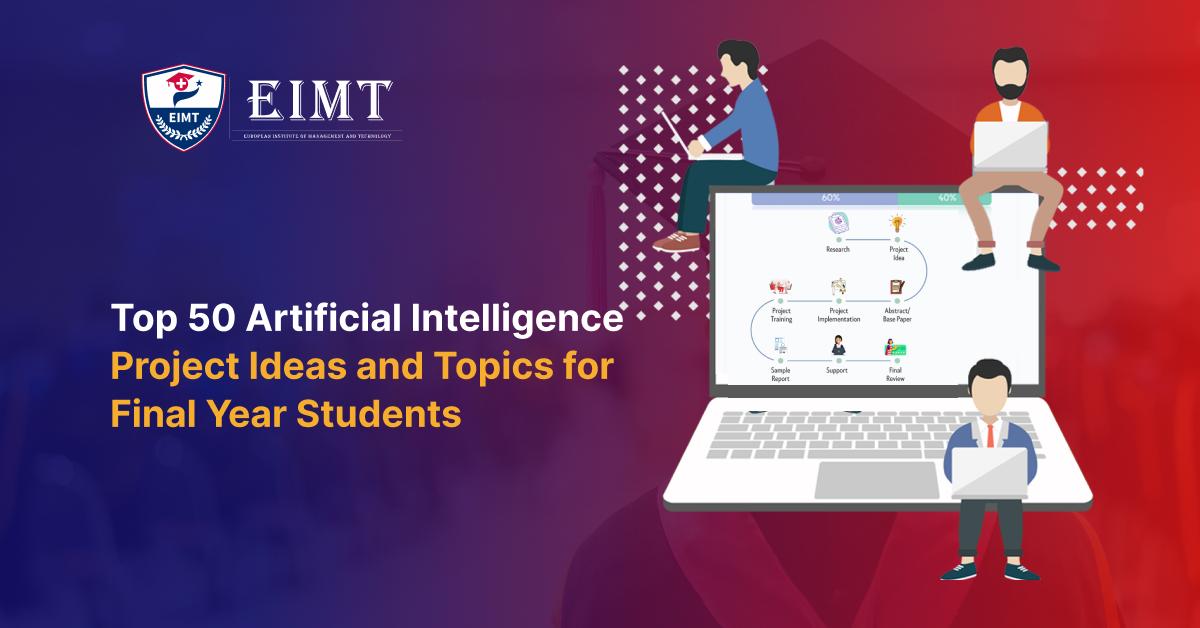How AI is Shaping Doctoral Research in Computer Science
Home / How AI is Shaping Doctoral Research in Computer Science
MANAGEMENT
Aug 24, 2024
Artificial Intelligence (AI) has been making significant headlines across diverse fields in recent times, and academic research is no exception to this development. When we consider the realm of the artificial research domain, AI is presenting opportunities in exciting ways, potentially transforming the processes of how doctoral research is conducted. A major contribution of artificial intelligence is its ability to process vast data in a quick and accurate manner. This is helping researchers tackle complex problems in an efficient way that was not possible earlier.
Transformative AI tools, including data mining, ChatGPT, and machine learning algorithms, are proving to be innovative and applicable across wider contexts. These tools assist several researchers in analyzing huge datasets, spot trends, and making predictions without getting stuck in the complexities. It allows researchers pursuing a Doctorate in Computer Science to focus on more intriguing and crucial segments of the thesis, thus increasing their productivity.
Dynamic Partnership Between Doctoral Research and Artificial Intelligence
During doctoral research in computer science, AI can be considered a collaborative associate that can stimulate human thinking. Researchers can utilize AI to push across traditional means to solve complex issues that were earlier not possible. When you are performing the research, you may miss out on information that may prove important, but AI can accelerate the research process by analyzing the datasets and delivering patterns and insights for you to consume. It lets you concentrate on the formulation of new ideas and theories during your research work.
With the assistance of artificial intelligence, you can detect anomalies and patterns that are tough to spot manually. However, there are some drawbacks to this. Reliance on AI also introduces a sense of unpredictability as the insights are derived entirely on the basis of data and statistical models. This also means that researchers need to stay flexible and keep their expectations adjustable as they move forward in the PhD thesis.
Artificial Intelligence: A Tool and a Frontier in Doctoral Research
AI is playing both a field of study and an influential tool in the doctorate in computer science, adding a layer of complexity to the entire process. As mentioned earlier, AI systems understand human language to predict market trends and tackle a gamut of problems. There is another aspect that researchers are constantly exploring the foundations of AI itself, pushing the boundaries, and exploring how the internal system is operating.
The deep learning models are known for making impressive strides in the areas that include image recognition and learning models. for language processing. However, these models are "black boxes" in nature, and we have no idea how AI makes their decisions. Research in this area focuses on making these deep learning models more understandable and transparent in their workings.
Ethical reasons also play a vital role as AI is becoming more embedded in our daily lives. The researchers must address critical concerns such as variance, bias, inaccuracies in the models, fairness, accountability, and other forms of misinformation that may harm the credibility of your PhD research.
AI-Driven Doctoral Research: The Surrounding Unpredictability
The dynamic evolution of artificial intelligence presents a real challenge for doctoral researchers. On one hand, people have embraced AI tools in a manner similar to other available tools to improve the quality of writing. The tangible impacts of utilizing AI include writing abstracts, shortening of theses and papers, simplification of complex ideas, composing guidance documents, and developing assessment models. This constant change brings exciting possibilities for novel viewpoints and discoveries. On the other hand, this also means the pioneering research work done today might become obsolete tomorrow as it may tend to lose its cutting-edge nature.
Imagine yourself spending considerable years into research work focused on developing a new deep learning algorithm, only to have an innovation in the quantum computing world or a major shift in research focus making your research work less relevant. Thus, it is of prime consideration for doctoral researchers to be highly adaptable, keeping up with the latest trends and remaining agile to pivot their focus as per the need of the thesis work.
It is of paramount importance for researchers to maintain an equilibrium across multiple fields and keep track of the applications of AI in other fields such as biomedical science, genomics, social science, and environmental science. This is needed as new findings can open up the horizons of various novel questions that you may not have imagined.
The Ethical Aspects of Using AI in Doctoral Research in Computer Science
As AI systems become more robust and integrated into our daily lives, there are greater risks and unintended consequences attached to them as they progress. Some of the daunting concerns in the utilization of artificial intelligence in research work are controlling plagiarism and deception while formulating the assignments, theses, and dissertation papers. Scholars usually incorporate ChatGPT-generated AI text into their research thesis, thus compromising the integrity of the doctoral program. Besides this, the use of ChatGPT has led to a negative influence on the scholars' motivation to learn how to design and write the thesis. It also impacts the innovative thinking and expression skills of the scholars.
Another significant ethical issue is bias in AI models. Researchers should focus on the reproducibility of their AI models. In case the models do not generalize well with the unseen data, it can lead to bias and overfit results. This can be viewed as facial recognition systems being misleading for certain ethnic groups, raising serious concerns in sensitive areas such as law enforcement agencies.
Wrapping It Up
The impact of AI on doctoral research in computer science is huge considering its ability to generate high-quality and accurate research writing worth finding a place in prominent journals. It is certainly changing how the research is performed and helps in developing the appropriate research frameworks. In hindsight, this impact also brings uncertainties and other concerns that include the genuineness, reliability, and integrity of autogenerated research writing. As an aspirant of doctoral research, you need to navigate the constantly evolving AI landscape and conform to ethical considerations while striving for responsible research.
Latest Updates & Articles
Stay Connected !! To check out what is happening at EIMT read our latest blogs and articles.







